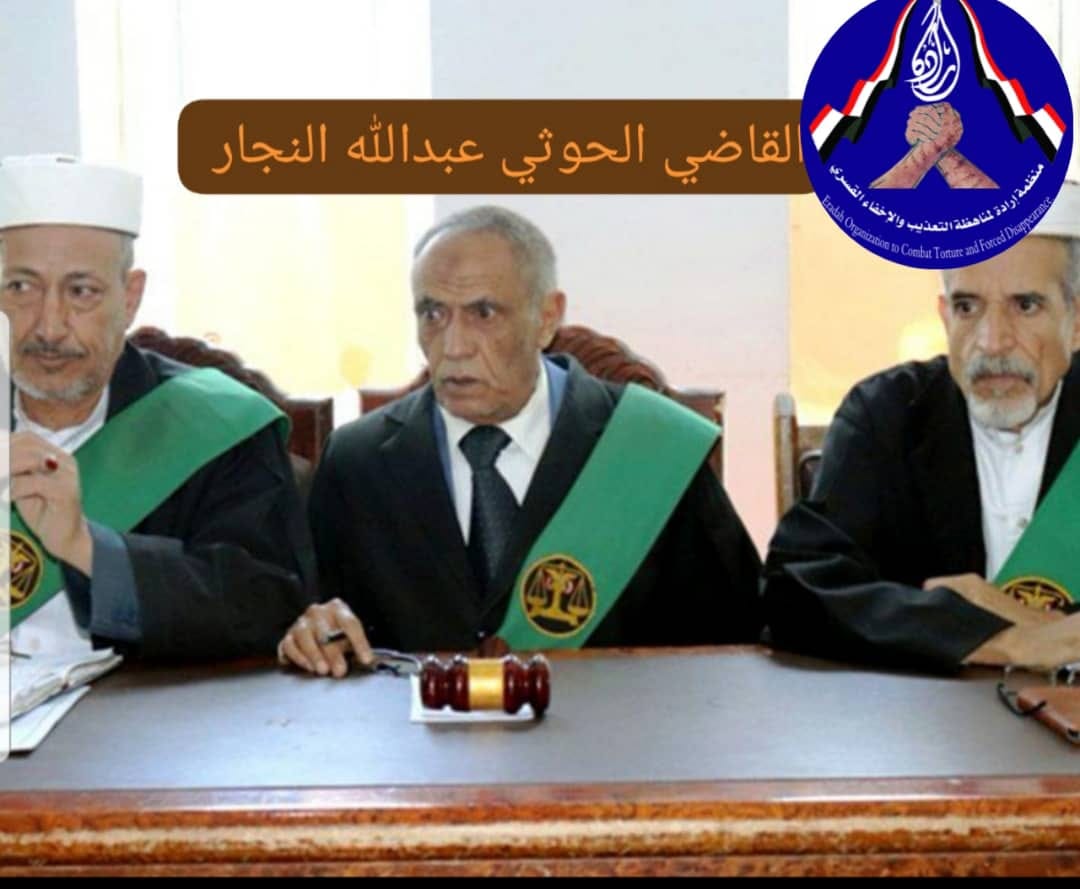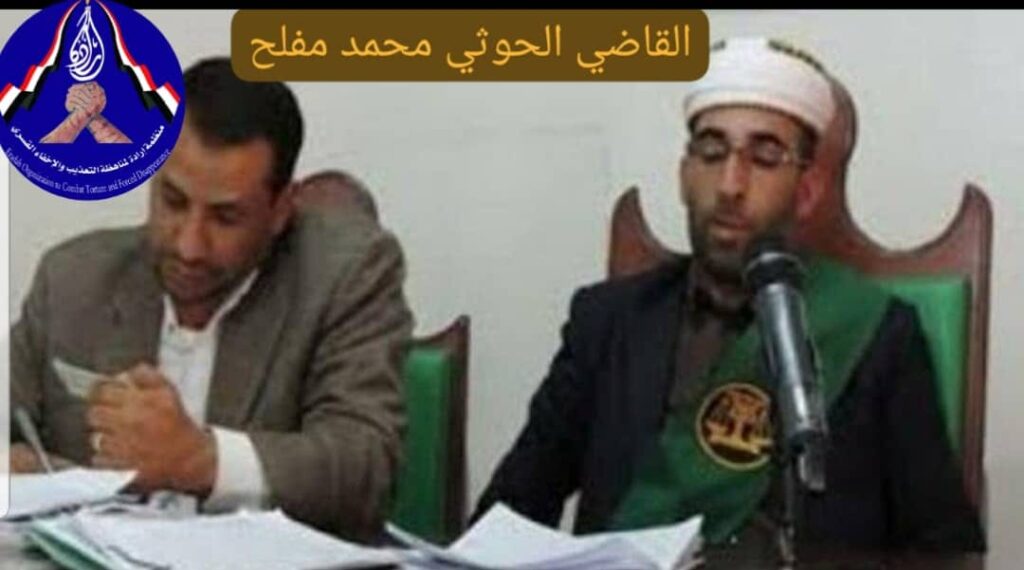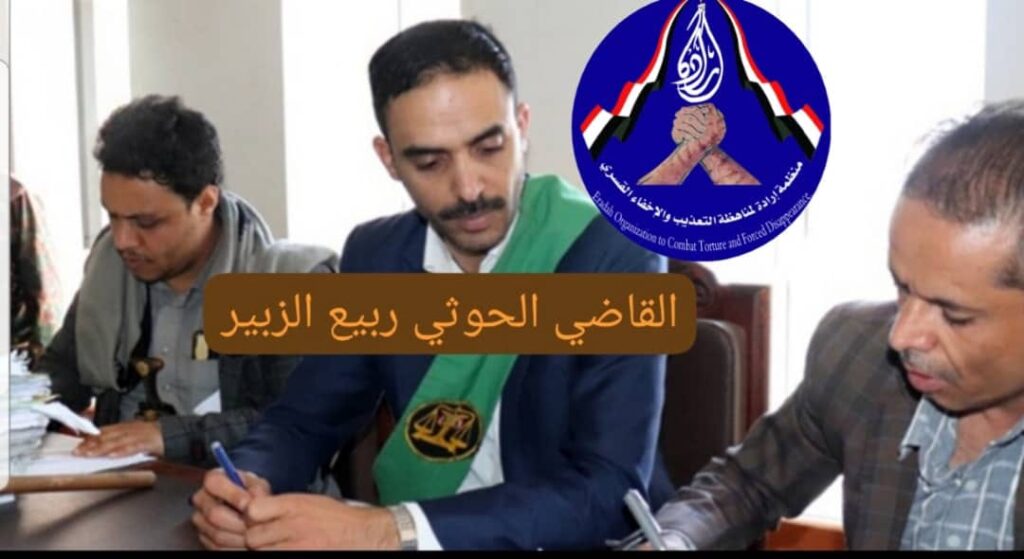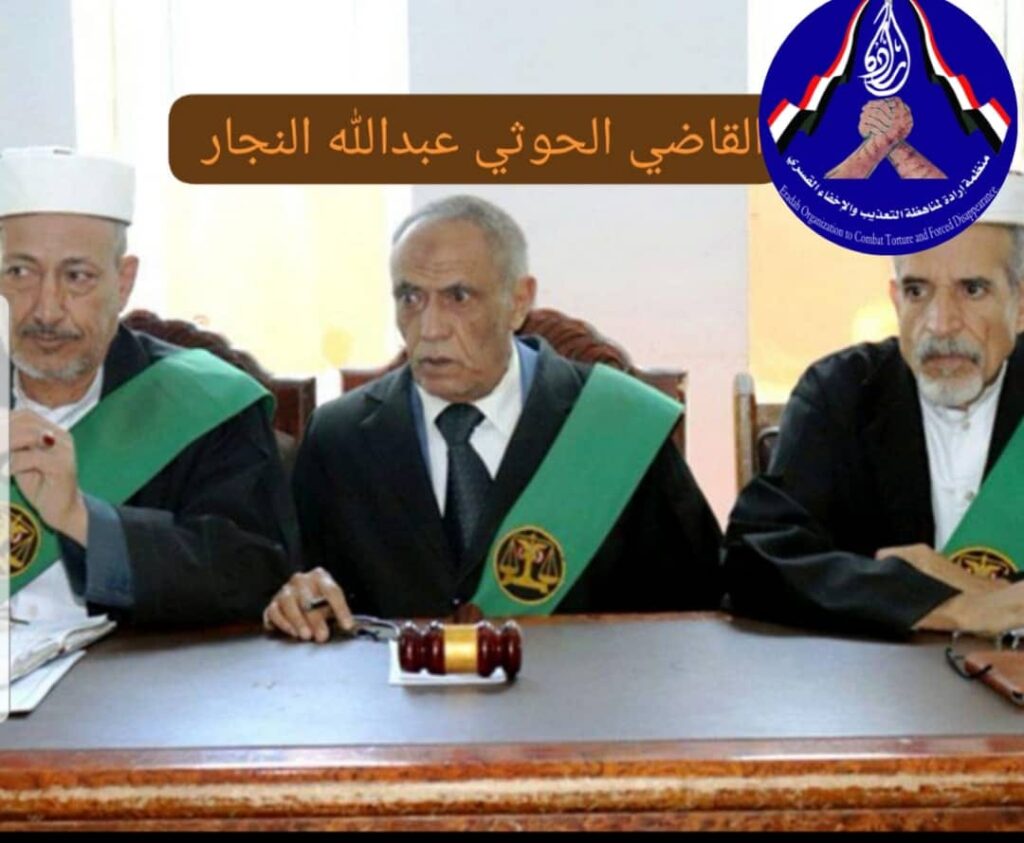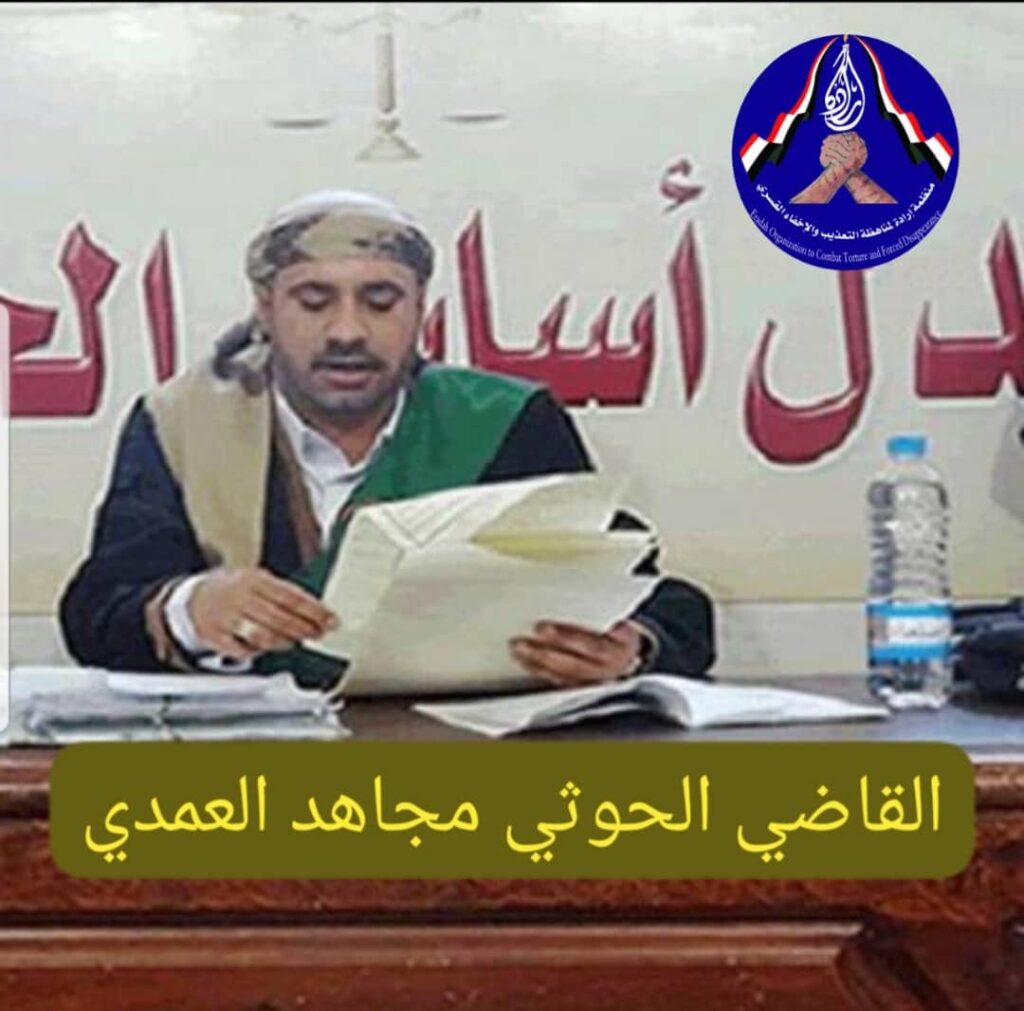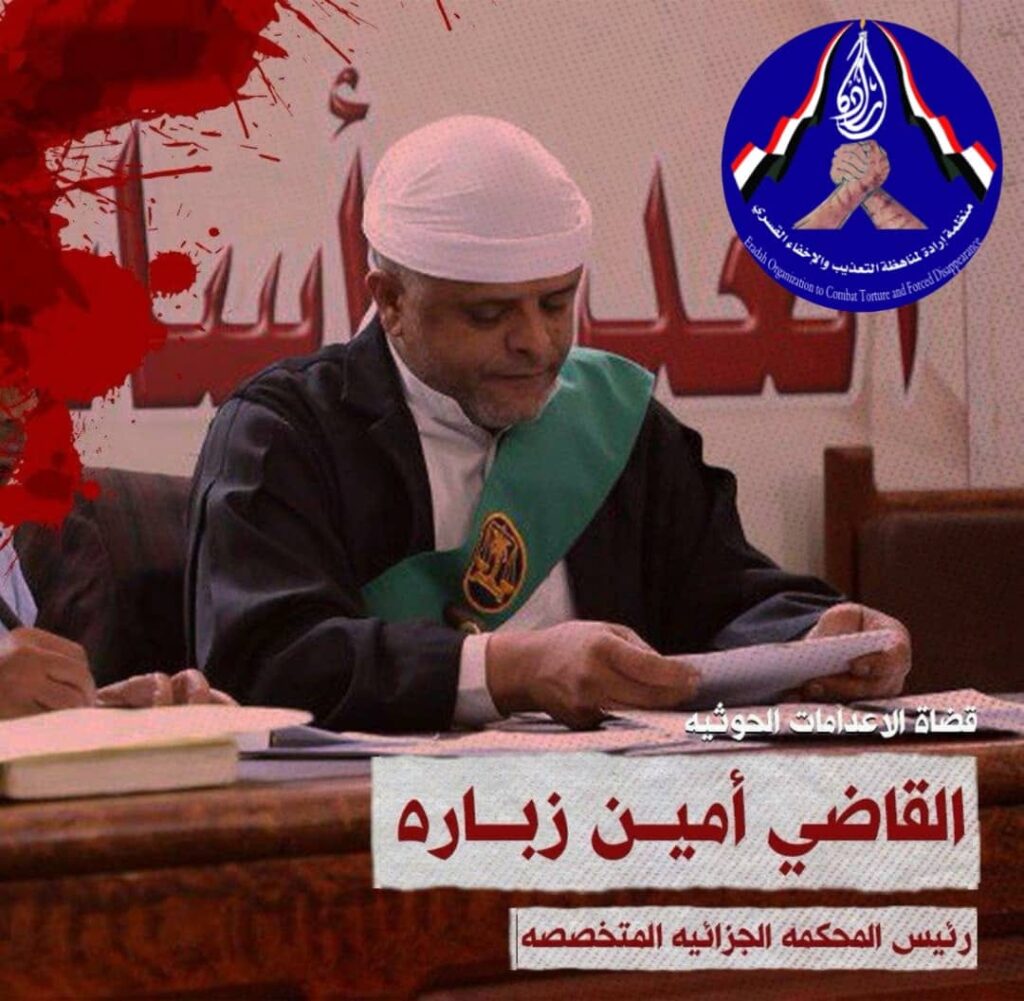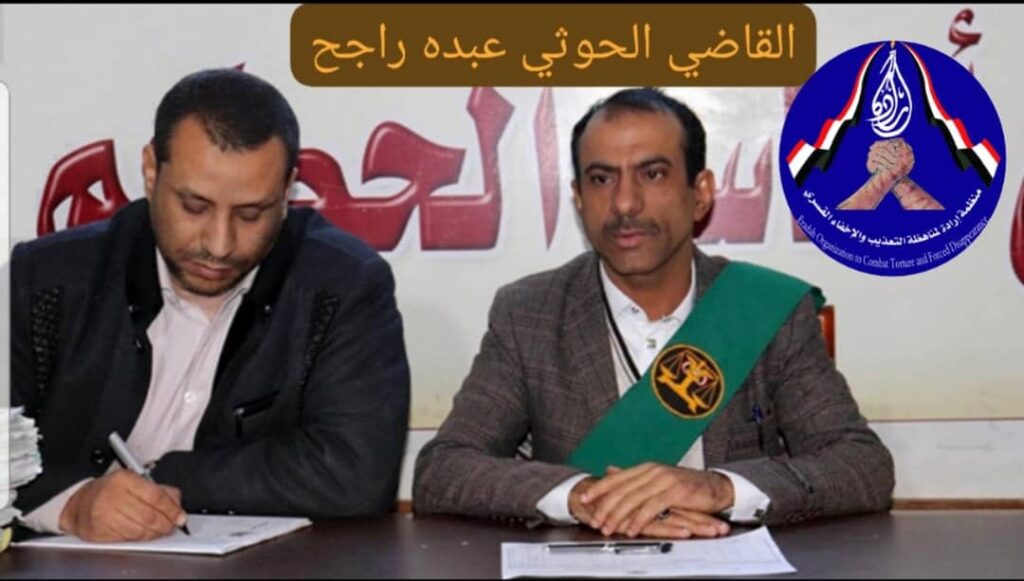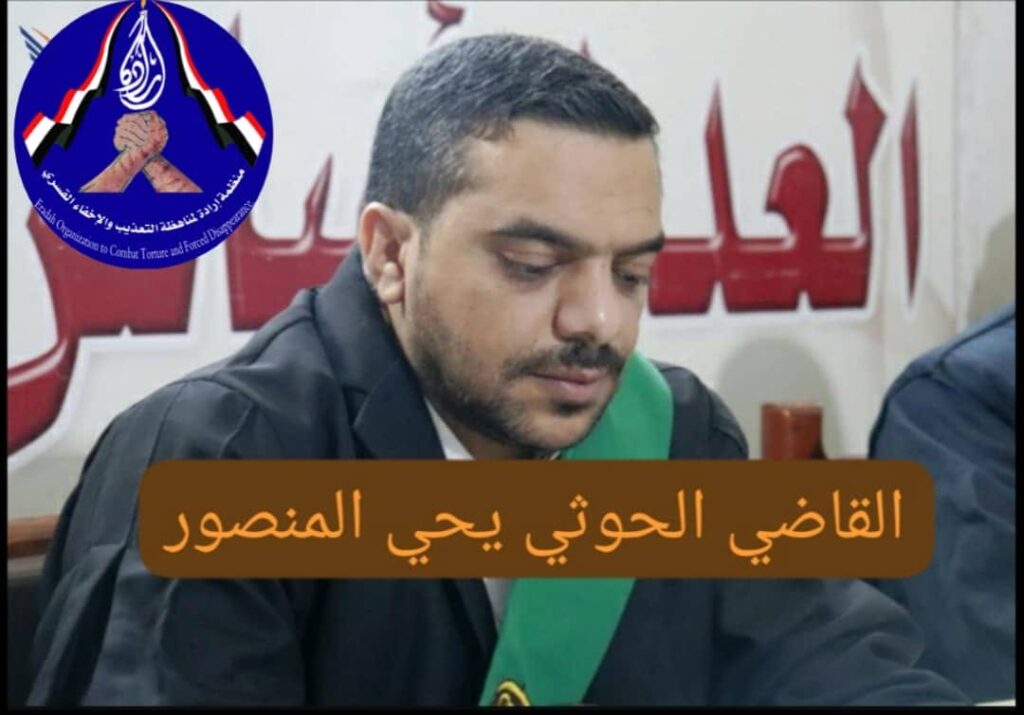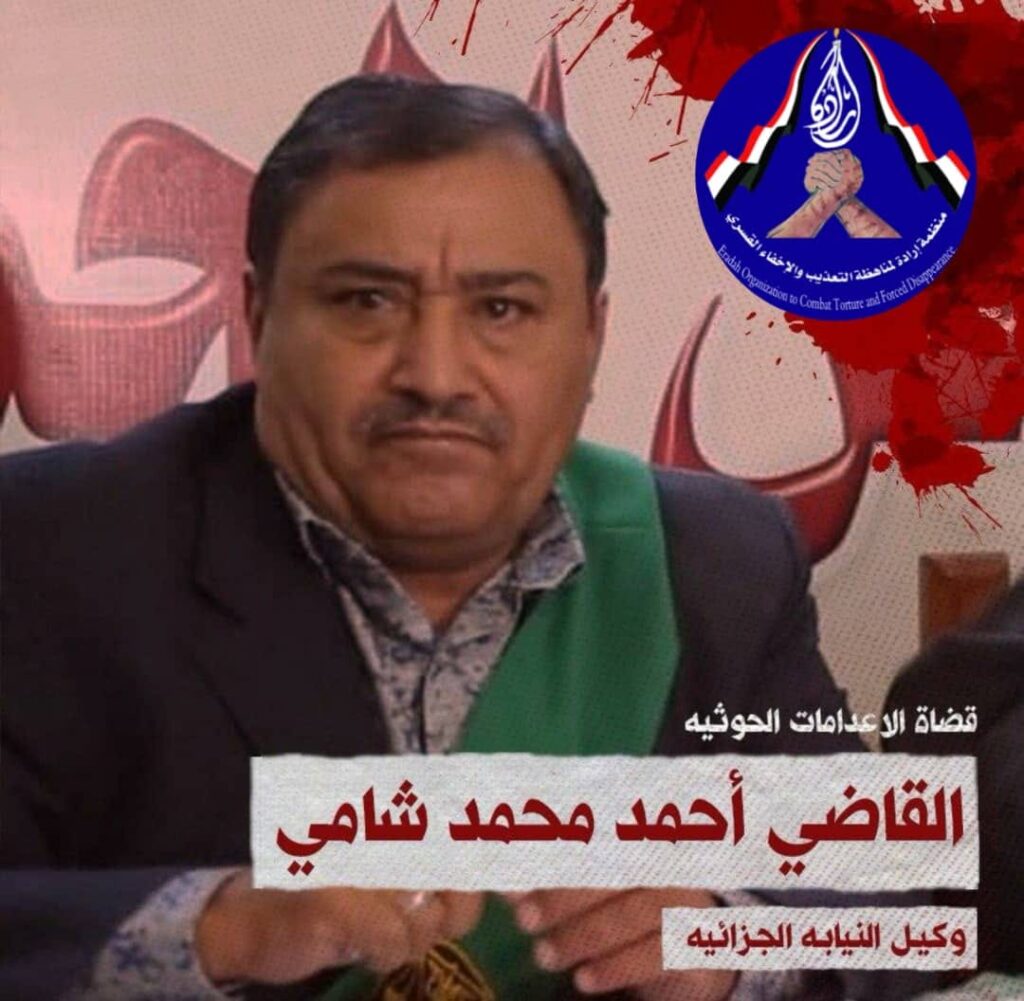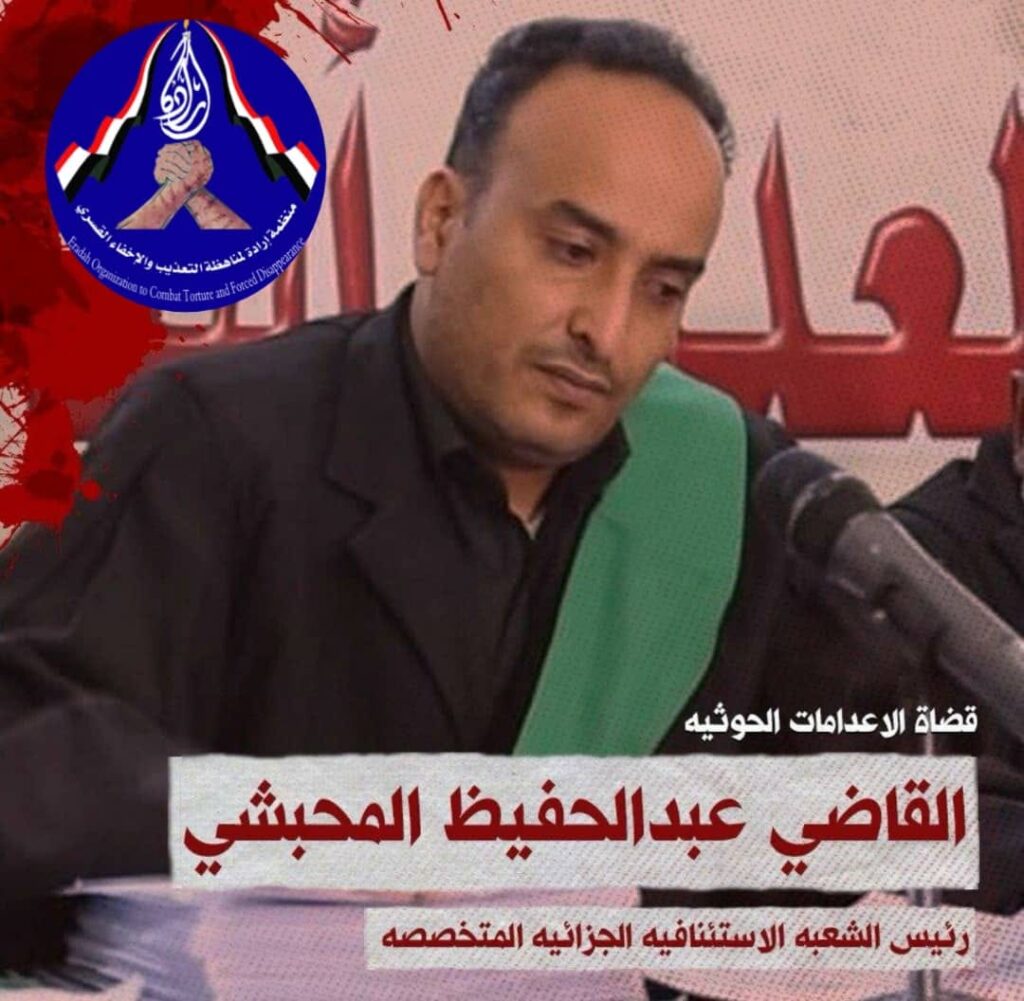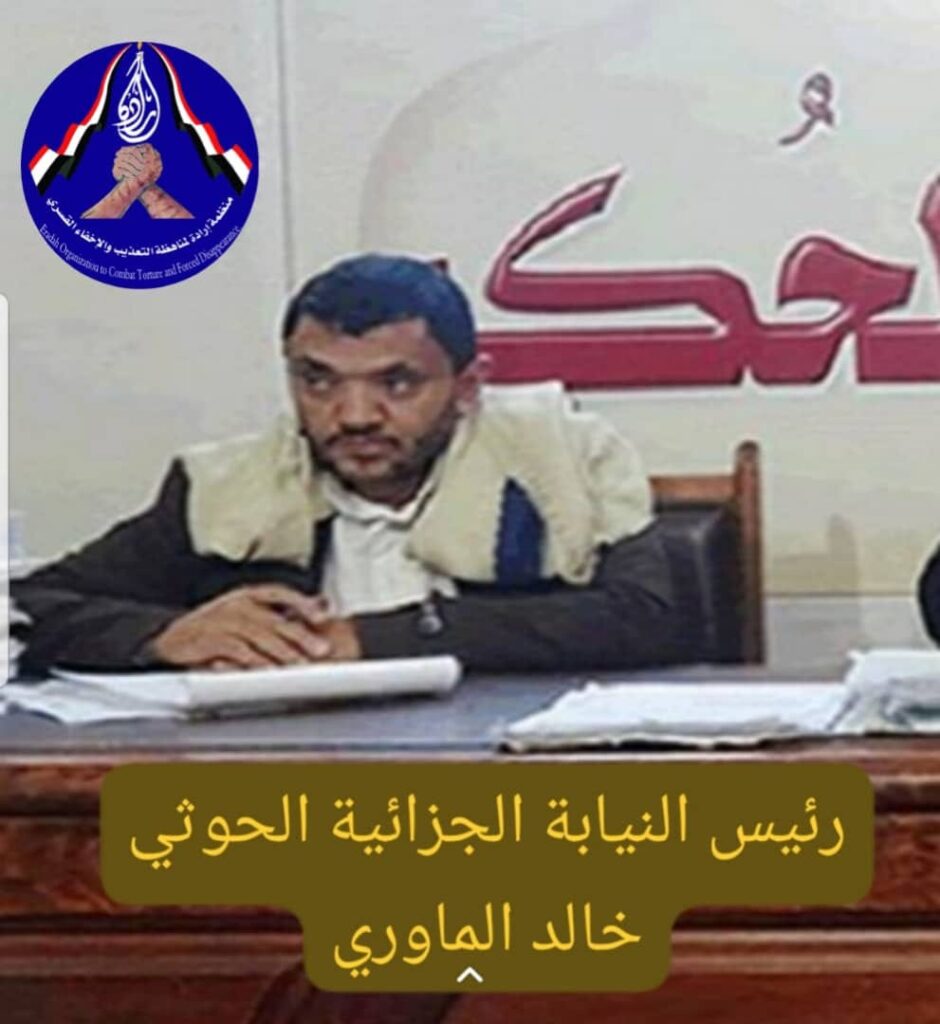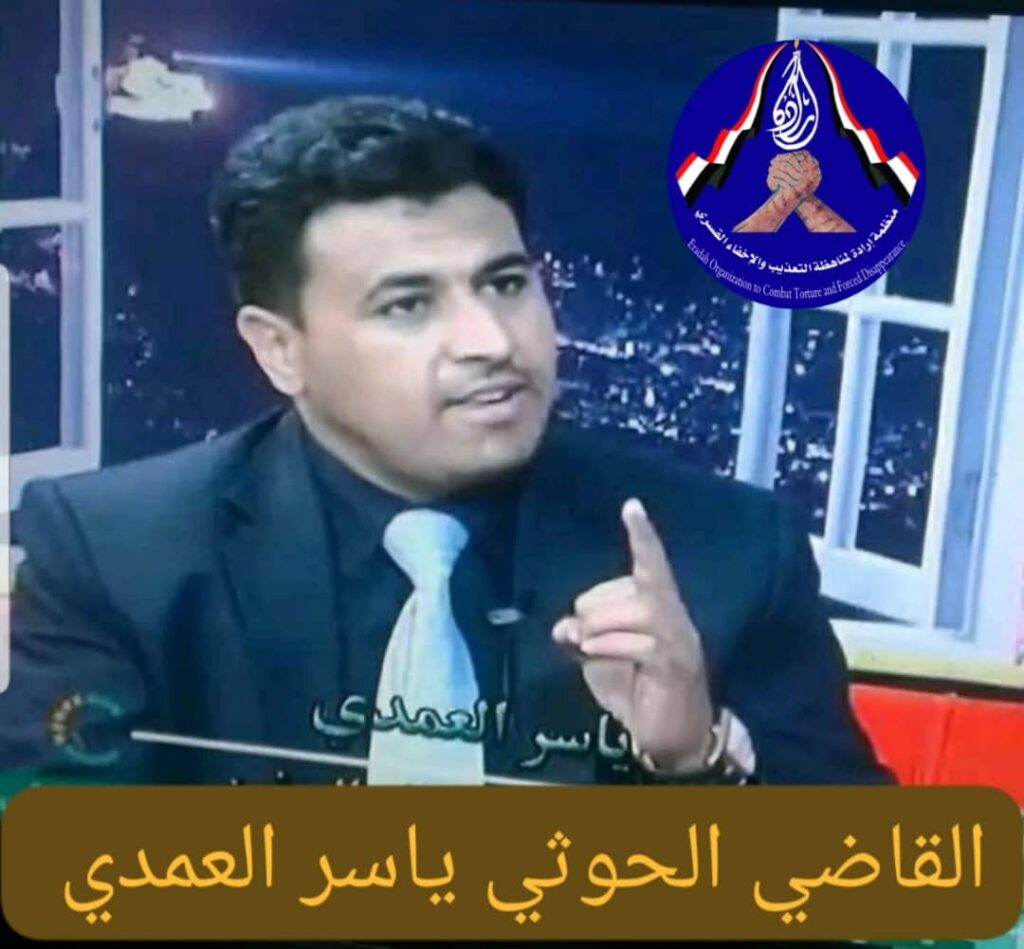The Specialized Criminal Court, Houthi’s Guillotine in white clothingA repor
This report states a part of the violations against human rights in Sana’a, specifically by the Specialized Criminal Court that Houthis militia used to legalize killing Yemeni civilia Sana’a Specialized Criminal Court lacks constitutional and legal legitimacy. This is based on a decision issued by the Supreme Judicial Council of the internationally recognized government in April 2018, which abolished the Specialized Criminal Court under the Houthi authority and stipulated the transfer of the Specialized Criminal Court of First Instance and the Specialized Appeals Division from Sana’a to Ma’riDue to significant concerns for the lives and safety of the abductees and prisoners detained by the Houthi which exercises complete control over the judiciary, putting the detainees at real risk, the Supreme Judicial Council issued the decision to abolish the Specialized Criminal Court after Houthi’s controlling Sana’a on Sept 21, 2014 coup, who used the court to legalize torture crimes and human rights violations committed against abductees and forcibly disappeared by Houthis in the national and security prisons. Sana’a Specialized Criminal Court passed a lot of death sentences against abductees, the majority of them were academies, teachers, socialites, journalists, scientific cadres and political activists. The disregard of the judiciary reached its peak after Houthis militia kidnapped children and passed judgements on them in order to make their relatives comply with what Houthis asked them to do. The Specialized Criminal Court also was used by Houthis to pass death sentences on Locally and Internationally Human Rights Orgs workers after they refused Houthis’ request to get hold of the assistance provided by international donors, as Houthis group wanted to give the assistance to its members and not civilians Among those sentenced to death was Adnan al-Harazi, who was arrested in Jan 2023, CEO of Prodigy Systems, a Sanaa-based company that developed systems to help humanitarian groups register and verify the distribution of aid to those in need in the war-stricken country. On 1 June 2024, the Specialized Criminal Court issued a death sentence and froze the assets and property of Adnan al-Harazi (51 years old), founder and director of the company Prodigy Systems Inc., which has worked since 2006 in the technical, monitoring and evaluation field as an independent body for relief work done by organizations and United Nations agencies. Al-Harazi faced accusations of “participating in a criminal agreement with those working for the benefit of the Saudi-Emirati aggression, seeking and communicating with a foreign country in a state of war with Yemen, namely the United States of America and the United Kingdom, and contracting with international organizations and governmental bodies (the American Maestral International, the World Bank, the British Council, the Dutch University of Maastricht) affiliated with these countries. With the assistance of intelligence and security services, Houthis rebels used the Specialized Criminal Court as a big stick against innocent civilians in order to blackmail them and intimidate them into obedience. Most verdicts of the court were politically motivate and non-compliance with the constitution of Yemen. It’s worth mentioning that the Specialized Criminal Court passed more than 600 executed and imprisonment verdicts for between 25 and 5 years.
The most notably Houthis judges working at the Specialized Criminal Court (who passed sentences death
1- The judge Mohammed Mufleh, enforcement judge at the Criminal Court, is the one who sentenced the journalists to death and passed default judgements on Yemeni statesmen, primarily the President Abdurabbah and his advisors Abdulaziz Jubari, Sultan Al Atawani and Abdulwahab Al Anisi and 35 members of parliament and confiscated their property and homes based on Houthis malicious charges, in addition to passed a sentence death against the journalist Yahya Abdulraqeep Al Jubaihi on April 12, 2017, Al Jubaihi was abducted by Houthis intelligence and security members from his house in Sana’a with 2 of his sons, Hamzah and Thiyazan. Al Jubaihi was released later through Omani’s mediation without handing down a verdict of guilty while his son Hamzah spent 5 years in Houthi’s jails. This Houthis loyalist Judge keeps on prosecuting the abductees who were kidnapped in 2014 and 2015. The total verdicts that he passed were 176 distributed between execution by firing squad and long term imprisonment. Most of the executed people are still in intelligence and security service camp amid fears of execution of the judgements by Houthis. Mohammed Mufleh is from Taibah village of Wadi Dhaher, northern Sana’a. After graduation from Faculty of Shari’a & Law, he attended the Higher Institute of the Judiciary. He was appointed as a judge in the commercial court in Sana’a. He is adherent to the Jarudi sect. In 2004, He joined the Believing Youth movement, which was founded by the Houthi leader Hussein Badr Addeen Al Houthi. After controlling Sana’a, Houthis group appointed him in 2016 as a judge in Sana’a Specialized Criminal Court.
2- The Houthi Judge Abdu Esmail Hassen Rajih, enforcement judge at the Criminal Court and is a member of Judiciary for 15 years. He is from Al Haimah Al-dakhiliyah of Sana’a. He graduated from the Higher Institute of the Judiciary and was deeply loyal to the Houthis militia. The Houthis appointed him in Oct 2016 head of Sana’a Specialized Criminal Court controlled by Houthis militia. In one hour session, he issued an execution judgement against 30 abductees in one court’s judgement, in addition to the decision against the recognized president Abdurabbah Mansour Hadi, 6 Statemen and the kidnapped woman Asma’a Al Umaisi. The total verdicts that he passed were 154 distributed between execution and long time imprisonment, most of those are still in intelligence and security service prison in Sana’a. It’s worth mentioning that the Judge Abdu Rajih has passed sentences death without pleadings, but as the directions he received from the uncle of Houthis leader Abdulkareem Ameer Ad-deen Al Houthi.
3- The Houthi Judge Yahya Abdulkareem Al-mansour, enforcement judge at the Criminal Court. He issued the sentence death in Case No. 25 of 1445 AH against Adnan Al-Harazi, Amar Mohammed An-najar, Sameer Hussein Mohammed Al-umari and others, with a total of 44 sentences in one court hearing.
4- The Houthi Judge Ameen Ali Ahmed Zabarah, the head of Hudaydah Branch of the Specialized Criminal Court. In August 2020, He doled out 62 death sentences in one court hearing and carried out the death sentence on the 9 people from Hudaydah, Mohammed Nooh, Ebrahim Aqel, Ali Al Qawzi, Abdulmalik Hameed, Mouath Abass, Abdulaziz Al-Aswad (under age), Mohammed Al-mashkhari and Mohammed Ebrahim Qawzi, the tenth of them, Ali Abdu Kuzabah, was died under torture in the intelligence and security service prison. The other judges involved in passing the death sentence against the 9 executed people from Hudaydah were the following: The head of the Specialized Criminal Court the judge Ameen Ali Ahmed Zabarah, the chairman of Hudaydah Court of Appeal judge Abdulhafeedh Al-mahbashi and the director of the Specialized Criminal Prosecution judge Wadhah Al-qurashi .
5- The Houthi Judge Abdullah Mohammed Dawas, enforcement judge at the Criminal Court. He doled out a sentence of executing the 4 people, Fadhl Hussein Al-masqari, Mohammed Ayedh Ali Mismar, Muamr Hizam Abdullah Al-razi and Abdulmalik Saleh Ahmed Ziyad and fined $6 m. and 10 m. Yemeni Riyals paid to the heirs of Houthi’s leader Hassen Zaid. Dawas also sentenced 10 others for between 10 and 6 years for “conspiring with a foreign state” – namely the Arabic Coalition, US and Britain. In a court hearing attended by Criminal Prosecution member the judge Nasr Al-qasimi and the judge Adel Al-judari, Dawas passed default judgement on crown prince of saudi arabia MBS and UAE President MBZ for forming an illegal armed group. In addition to a 25 year prison sentence on 16 abductees.
6- The Houthi Judge Abdullah Ali An-najar, enforcement judge at the Criminal Court. He indicated dozens of death sentences and upheld others. He passed the death sentence on the teachers Abdulaziz Al-aqeeli, Saghir Fare’a and Esmail Abu Al-ghaith, who were forcibly disappeared for 5 years till Eradah Org issued a statement to disclose their detention place in Sirf mountain prison, eastern Sana’a. They were transferred to intelligence and security prison in Hadah where they were allowed to be visited for a while before bringing them to the court that sentenced them to death. An-najar also passed a 25 year prison sentence on others. The judge An-najar, who passed sentences death against the youth Badr Yahya Al-Marani – abducted for 9 years – by firing squad, serves as the head of the Criminal Division of the Specialized Criminal Court and was deeply loyal to the Houthis militia’s leader .
7- The Houthi Judge Rabee’a Az-zubair, enforcement judge at the Criminal Court. He is the one who jailed Fahd Abdullah Abduljalil Al-hasani to death and sentenced Abdulhafidh Rashid Hussein As-suhaimi, Naser Ahmed Mohammed Al-mashmali, Mazen Ahmed Mahub Abdullah As-sawa’i and Hussein Mohammed Ali Qaid Adh-dhawi to 10 years and Adnan Ali Hadi Ali Marish, Basam Abdu Mohammed Ahmed Al-mahbashi, Khalid Ali Qaid Hussein Adh-dhawi, Emad Ad-deen Abdulaziz Rajih Ali Al-hadad and Najeeb Ezi Ma’n Mohammed Ghalip to 5 years .
8- The Houthi Judge Khalid Saleh Qaid Al-mawiri, the head of the Specialized Criminal Prosecution. He is the main judge standing for issuing death sentences of the Specialized Criminal Court and was the one requested to implement the judgement on the journalist Yahya Abdulraqeep Al Jubaihi on April 12, 2017 by firing squa .
9- The Houthi Judge Yasser Ahmed Abdu Al-amdi, enforcement judge at Dhamar Criminal Court. He is under 26 years old, though he is Chief Judge of Dhamar Criminal Court 1st instance. He sentenced 9 abductees to death by stoning and crucifying, later suspended for fearing of the soceity reaction, and jailed 23 others for between 10 and 6 months. He ordered to flog 30 university students arguing that they they wrote a romantic letters to their girls colleagues and fired them out of the provinc .
10- The Houthi Judge Mujahed Al-amdi, enforcement judge at the Criminal Court. He services at the Presidential of the Specialized Criminal Court and passed dozens of execution judgements on abductees. He also trailed 209 people claimed that they forgged land documents in 1335 AH belonged to their Imamit Zaidi ancestors, but in fact, Houthis used this trick to confiscate dozens hectares of land southern Sana’a
The judges mentioned above are sample example Establishment of Sana’a Specialized Criminal Cour
The Specialized Criminal Court and Public Prosecution Office were established in Yemen for the first time in 1999, in accordance with Republican Decree No. (391) for the year 1999. The stated goal for their establishment was to confront crimes of kidnapping and highway banditaEach of the Specialized Criminal Courts consist of a president and a number of judges. In the court of first instance, the ruling body consists of one judge, and in the specialized criminal appeals.
The specific jurisdiction of the Specialized Criminal Court, in accordance with Article 3 of Republican Decree No. (391) of 1999, is limited to the following crimes:* Hiraba crimes [Highway robbery]* Crimes of kidnapping of foreigners; sea and air piracy;* crimes of damage, destruction, arson and explosion to oil pipeline installations and facilities of oil; economic* crimes against public interests; crimes of theft of public and private means of transport carried out by armed or organized gangs or by one or more individuals by force;* as well as crimes of joining a bandit to attack the lands and property of the state and private citizens.* It also include crimes of assault against or kidnapping members of the judiciary or kidnapping any of their family members* According to its establishment resolution, the Specialized Criminal Court has jurisdiction to try the perpetrators, their partners and/or contributors of any of the aforementioned crimes in accordance with the law* As for the territorial jurisdiction, Article 4 of Republican Decree No. (391) established that the Specialized Criminal Court had jurisdiction over crimes that occured anywhere within the territory of the Republic of Yemen, including its airspace or territorial waters.
Issued by Eradah Organization to Combat Torture and Forced Disappeara
Oct 6, 202Geneva – Switzerland
